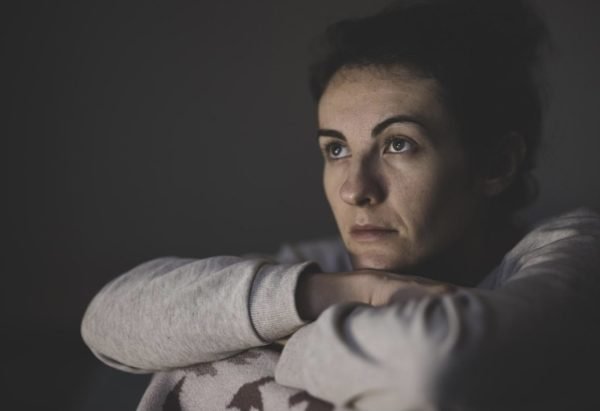
According to the CDC, 1 in 3 adults don’t get enough sleep. Does that sound familiar? If you find yourself tossing and turning most nights, or you just don’t go to bed at a decent hour, you could be a part of that statistic. Maybe you’re a part of it more than you’d like to admit.
You might think it’s not a big deal. Most people understand that sleep deprivation can impact your physical health – you might feel fatigued, worn down, and have trouble focusing. But, the lasting impact of sleep deprivation can cause much bigger problems.
Sleep improves your mind, body, and happiness all at once. Ignoring the effects that sleep deprivation could have on your emotional health is dangerous. Over time, it can negatively impact your mind so much that it will create problems in other areas of your life.
So, what’s the real connection? How does it impact your emotional health, and what can you do about it?
How Sleep Deprivation Breaks You Down
Sleep deprivation can cause different “stages” of emotional health decline. Even after just 24 hours, you can start to experience negative emotions as you go through the stages. Some of those emotions include:
● Irritability
● Anger
● Increased stress
After 36 hours, you can experience behavioral changes. If you’re awake for 48 hours, depersonalization and anxiety aren’t uncommon. Those might sound like extremes, but when you know you’re not getting enough sleep, they are real possibilities.
As you might expect, those negative emotions can make it difficult to get through the day. When you’re irritable or angry, it’s easy to “snap” on friends and family members, or even at work. Increased stress can put you at a greater risk of developing anxiety or depression. If you’re regularly experiencing these things due to a lack of sleep, they’re likely to keep getting worse.
Thankfully, you can “catch up” on sleep, but it’s not easy. Just losing one hour of necessary sleep requires four days to recover. Having a few stressful, busy days that cause you to lose sleep is one thing. Almost everyone experiences something like that once in a while. But, if deeper issues are causing your sleep deprivation, it’s crucial to get a clearer understanding, so you can find ways to get the rest you need.
The Sleep-Depression Connection
One of the stereotypical symptoms of depression is sleeping a lot. That’s true for some people, mostly due to the fatigue they feel. But, the relationship between sleep and depression is more complicated than that. It’s cyclical.
Fluctuating sleep cycles can be a symptom of depression. If you’re already struggling with your mental health, not getting enough rest can exacerbate your symptoms. Unfortunately, the more severe your symptoms, the harder it can be to get the sleep your mind and body need.
Seeking out help to treat your depression is one of the best things you can do. It’s not a condition that often “goes away” on its own. Even if you’re able to manage it well most of the time, it’s not worth losing sleep over – literally. A therapist will help you get to the underlying cause(s) of your depression, so you can learn how to work through and manage it more effectively.
It’s also important to develop healthier sleeping habits at home. Try to go to bed at the same time each night, avoid electronics before sleeping, and don’t take any long naps during the day. Finding ways to break the cycle will make it easier to get the sleep you need for your mind to be strong and healthy.
Find Your Control
Frequent sleep deprivation is often referred to as insomnia. Some of the most common signs of insomnia include:
● Difficulty falling asleep at night
● Waking up during the night
● Waking up too early
● Never feeling rested
● Daytime tiredness
Most people who struggle with insomnia are willing to try just about anything to get a good night’s sleep. Wanting to sleep but not being able to can be one of the most frustrating things you’ll ever experience. If any of the signs above sound familiar, you might have already tried different tips and techniques for a better night’s rest. But, if you’re still struggling, consider hitting the books.
No, we’re not saying research will put you to sleep.
Research different solutions for your sleep struggles. It could require more than just setting up a calming environment in your room. Depending on what’s triggering your insomnia, you may need to see a cognitive behavioral therapist (CBT) or sleep specialist. You might even need to learn how to practice better sleep hygiene.
The connection between sleep deprivation and your emotional health is too serious to ignore. Once you have a better understanding of that connection, you can empower yourself by seeking out solutions. Don’t wait to find help – your mind and body will thank you.
